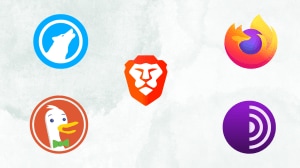Bric stock rally may plunge
The longest rally in developing nation stocks since 1997 may be ending as higher interest rates in Brazil,Russia,India and China curb earnings growth.
The longest rally in developing nation stocks since 1997 may be ending as higher interest rates in Brazil,Russia,India and China curb earnings growth. For the first time in two years,emerging-market analysts are cutting profit estimates more than theyre raising them,consumer stocks are trailing energy producers and shares of smaller companies are losing to larger equities,data compiled by Bloomberg and Morgan Stanley show. The same reversals foreshadowed the end of the emerging-market rally in 2008.
While the benchmark MSCI Emerging Markets Index has gained 0.9% this year and mutual fund investors are buying developing-nation equities at the fastest pace in five months,the gauge is valued at about 2.1 times net assets,11% higher than the 15-year average. Societe Generale SA and Barclays Wealth are advising clients to reduce emerging markets investments as inflation erodes record-high profit margins.
Inflation risk is much more visible in emerging markets than the developed world,said Kevin Gardiner,the global head of investment strategy at London-based Barclays Wealth,which oversees about $266 billion. Growth is beginning to slow. Meanwhile,valuations look full. The MSCI emerging-market index retreated 1.7% to on Monday after Standard & Poors cut its credit outlook on the US,the worlds biggest economy,to negative from stable. The gauge slipped 0.1% to 1,160.56 at 8:50 a.m. in London.
Inflation in China and India accelerated by more than economists predicted in March as rising commodities and inflows of capital into the fastest-growing major economies thwarted policy makers efforts to contain prices,government reports showed last week. Consumer prices in Brazil rose at the fastest pace in more than two years last month,while Russias inflation rate is 0.1 percentage point below the highest level since October 2009.
China has increased borrowing costs four times since October,while India raised rates eight times since March 2010 and Brazil boosted its rate five times. Russia lifted its main rate in February. Chinas benchmark one-year lending rate is 6.31%,while Indias repurchase rate is 6.75%and Brazils Selic rate is 11.75%. Russias refinancing rate is 8%.
Rising costs and interest rates are starting to take a toll on company profits. Gross margin,or the percentage of sales remaining after product expenses,has slipped to an average 31% for companies in the MSCI emerging-market index,from 33% last year,the highest level since Bloomberg began tracking the annual data in 1996. Shares of Infosys Technologies posted the biggest drop in almost two years on April 15 after the company predicted higher salaries will erode profitability. Rising commodity prices are triggering second-round effects via higher wages, Alain Bokobza,the head of asset allocation strategy at Paris-based SocGen,wrote in an April 11 report titled The EM Party Is Over.





- 01
- 02
- 03
- 04
- 05


























